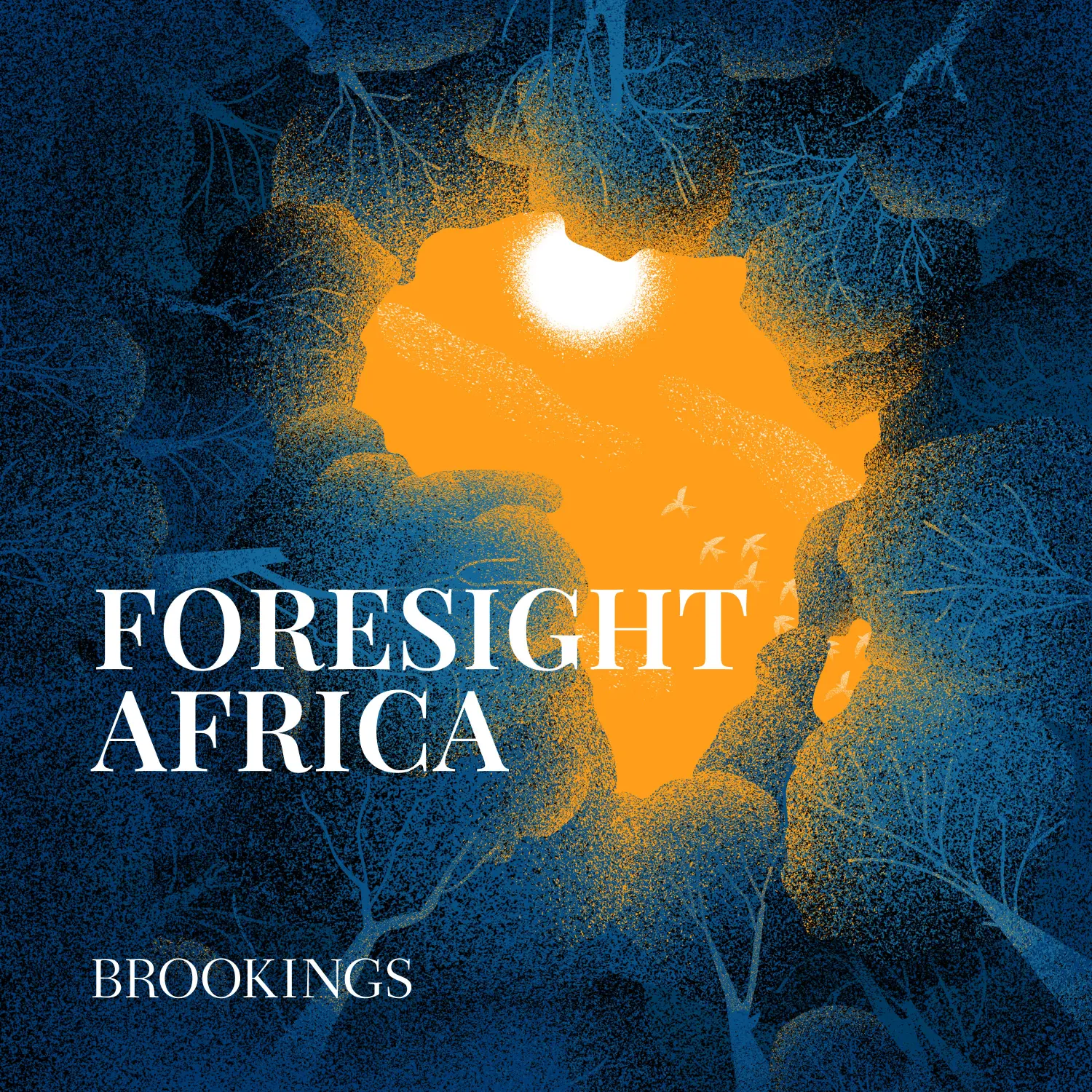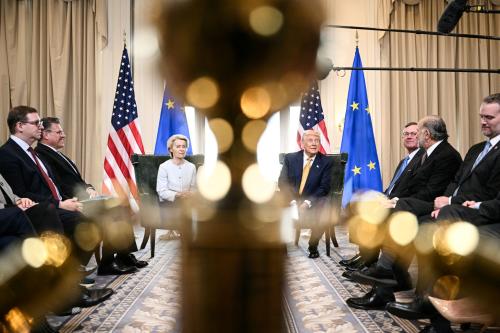This audio recording is part of the World Bank/IMF Spring Meetings 2025 special episode of the Foresight Africa podcast. Listen to the full episode, which includes interviews with six other speakers on site at the event.
Transcript
AXEL VAN TROTSENBURG: My name is Axel van Trotsenberg, I’m the senior managing director at the World Bank.
LANDRY SIGNÉ: Thank you so much for joining us today, Axel. Now that the week is almost over, what are your key takeaways from the 2025 Spring Meetings?
VAN TROTSENBURG: Well, I see that in two major areas. The first is clearly what you see, is that we have been single-mindedly focused on the jobs agenda, creating jobs, largely also driven by the concern that not enough jobs will be created in the developing countries, and that could leave many youths without jobs in the future, and that should be a common concern to all of us.
And the good news is that that resonated enormously with our shareholders. Of course, primarily the developing countries clearly concerned about this, but also developed countries, too, see that this jobs agenda needs to be addressed. And that I think is good news. We got very strong support in the development committee for that agenda, and we are taking this forward and I’m very pleased about that outcome.
Second outcome is this is an organization that is also of course providing a lot of financing to developing countries, and here half of the financing comes from the International Development Association—that is the fund for our poorest countries. And we had successfully negotiated a big package at the end of last year that needed now to go through formal processes. And by the Spring Meetings, 147 countries have now voted in favor of the IDA21 Replenishment Resolution. This is important because that allows us to start implementing this package as of July 1. So very happy about that. So that are the two major takeaways.
Then the other thing that we have been showcasing here in the MC [Main Complex] is clearly the knowledge agenda and the data agenda that we are pursuing. You see what we are doing with data, with outcome measurement, but also promoting a discussion on key development issues, this time clearly centered around the jobs agenda. So it gives people a bit of a sense that we will seek ideas, we are promoting debate, and we hope through that debate that we all rally for action.
SIGNÉ: Insightful! How might the 2025 Spring Meetings shape policy decisions and deliver tangible results across Africa moving forward?
VAN TROTSENBURG: Well, the the results for Africa are essentially embedded in these IDA replenishments, because as you know there we identify the commitments that have been negotiated between borrowing countries, largely African countries, and and shareholders. What is important here is to say that from the IDA resources like 70% is going to the IDA countries in Africa. So it’s of of prime importance. And actually we have been delivering on that together with our partner countries in Africa and that is the good news. And we want to keep up that ambition.
SIGNÉ: Amazing.
-
Acknowledgements and disclosures
The Foresight Africa podcast is brought to you by the Brookings Podcast Network. Send your feedback and questions to podcasts at Brookings dot edu. My special thanks to the production team including Fred Dews, producer; Nichole Grossman, Dafe Oputu, and Nicole Ntungire, associate producers; Gastón Reboredo, audio engineer; and Izzy Taylor, senior communications coordinator in Brookings Global. The show’s art was designed by Shavanthi Mendis. Additional promotional support for this podcast comes from my colleagues in Brookings Global and the Office of Communications at Brookings.
The Brookings Institution is committed to quality, independence, and impact.
We are supported by a diverse array of funders. In line with our values and policies, each Brookings publication represents the sole views of its author(s).





Commentary
Axel van Trotsenburg on the World Bank’s job creation agenda
Foresight Africa podcast at the 2025 World Bank/IMF Spring Meetings
May 1, 2025